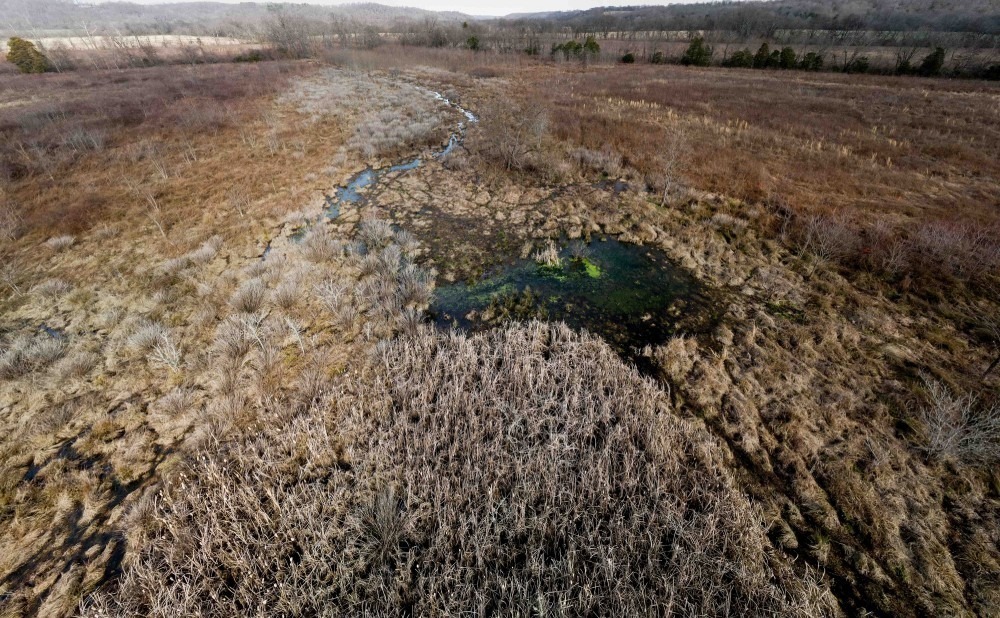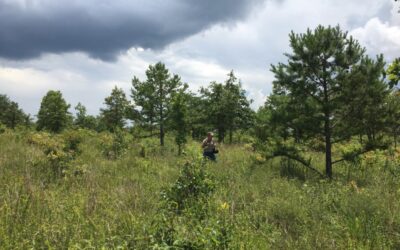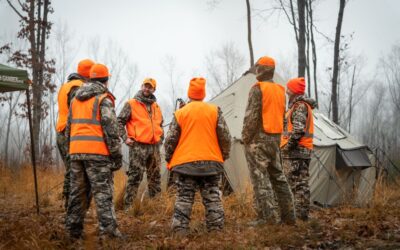Tennessee Wildlife Federation completed its 12th wetland restoration project in March on 50 acres in the floodplain of the Buffalo River, bringing the total wetlands restored to more than 1,000 acres.
The restored floodplain is part of a large farm in Perry County. Past agricultural practices led to several ditches being dug to drain the soil. Tennessee Wildlife Federation plugged the ditches to restore the natural flow of water across the floodplain and planted 15,000 native trees and shrubs to provide habitat.
Within a few weeks of the project’s completion, native wildlife have started to return to the site. Wildlife such as frogs and salamanders rely on wetlands for breeding in the spring, so the return of these species is a good indicator of a functioning habitat.
The Buffalo River is the longest tributary of the Duck River and the largest unimpounded river in Middle Tennessee. The 125-mile river contains nearly 85 species of fish, which contributes to significant diversity of aquatic wildlife in the Duck River. However, more than half of those fish species are considered rare, threatened, or endangered in Tennessee. The latest data from the Tennessee Department of Environment and Conservation lists 147 rare wildlife and plant species in the Buffalo River.
“The Buffalo River is an incredible watershed for aquatic species. It’s often overlooked because of the significance of the Duck River,” said Chris Roberts, director of conservation. “It has been great to work on this project and be able to see results so quickly. The Buffalo River is an important tributary to the Duck, and improving native wildlife habitat in that area is going to have positive impacts on the surrounding watershed.”
The remainder of the farm is being used for a native vegetation nursery—a large part of which will be focused on cultivating American chestnut trees, which became functionally extinct in the mid-1900s due to a fast-spreading fungus.
To learn more about the Federation’s Habitat Restoration program, visit tnwf.org/habitat-restoration. If you are a landowner interested in restoring native habitat on your property, fill out the Landowner Interest Form or email us at info@tnwf.org.




